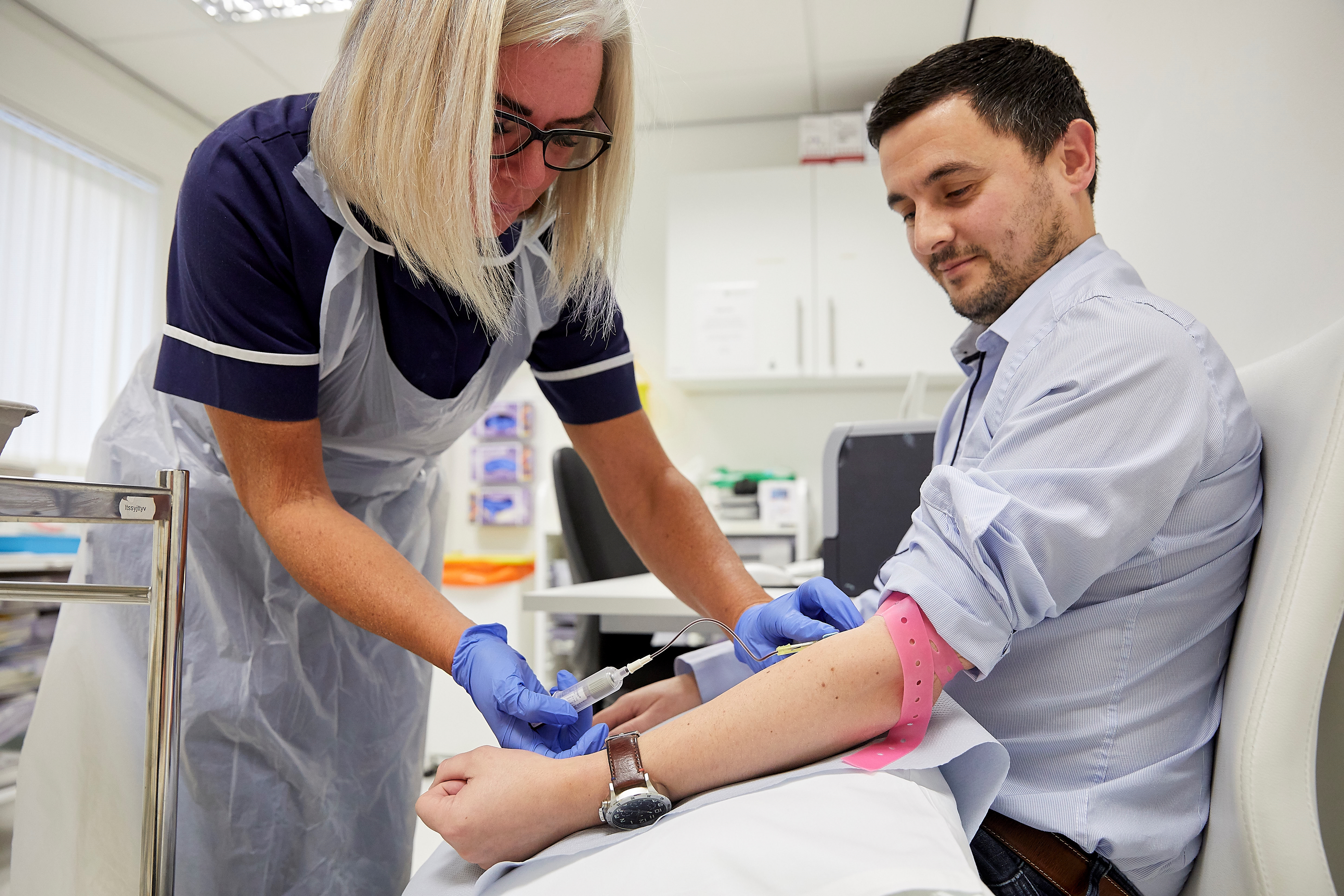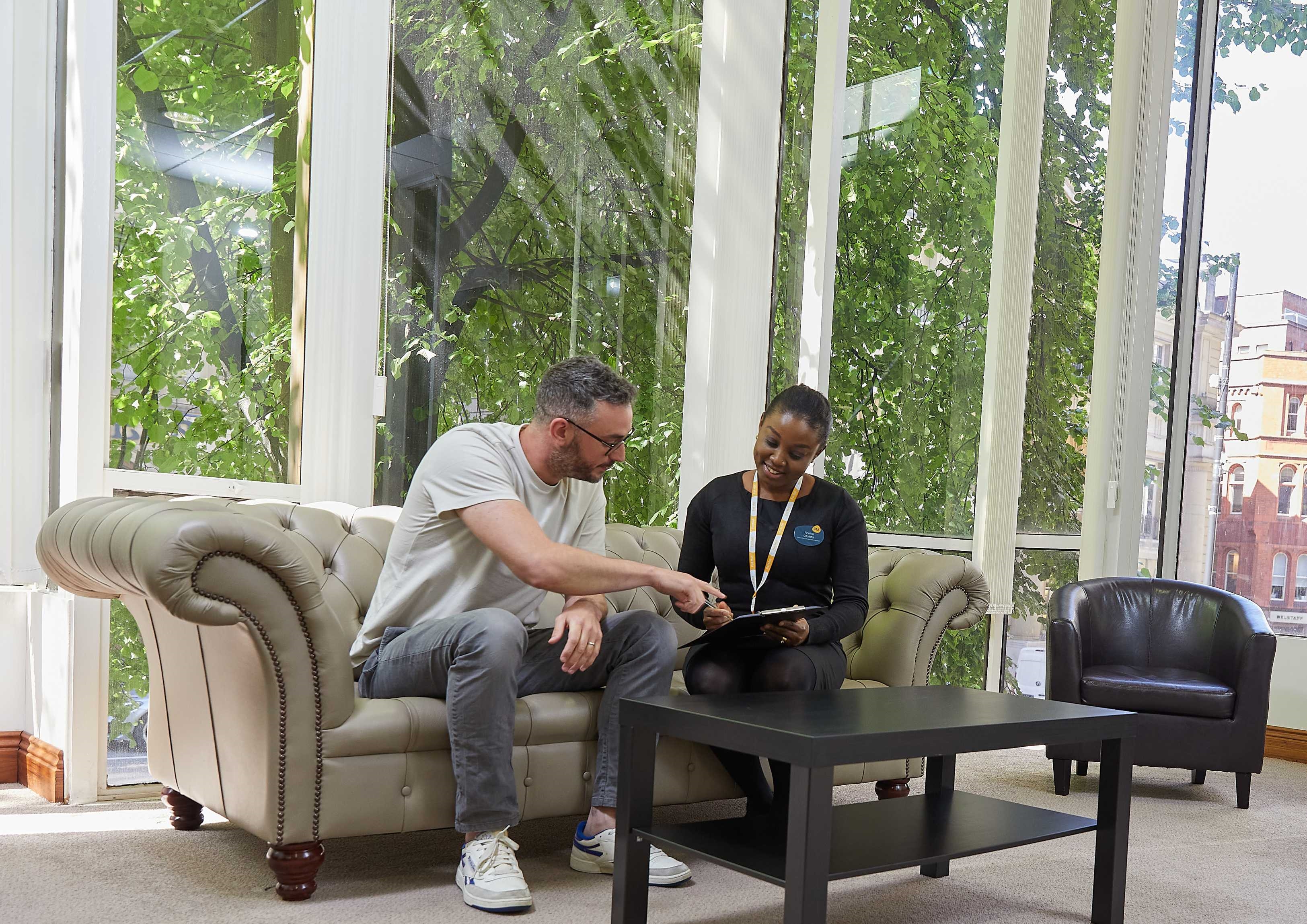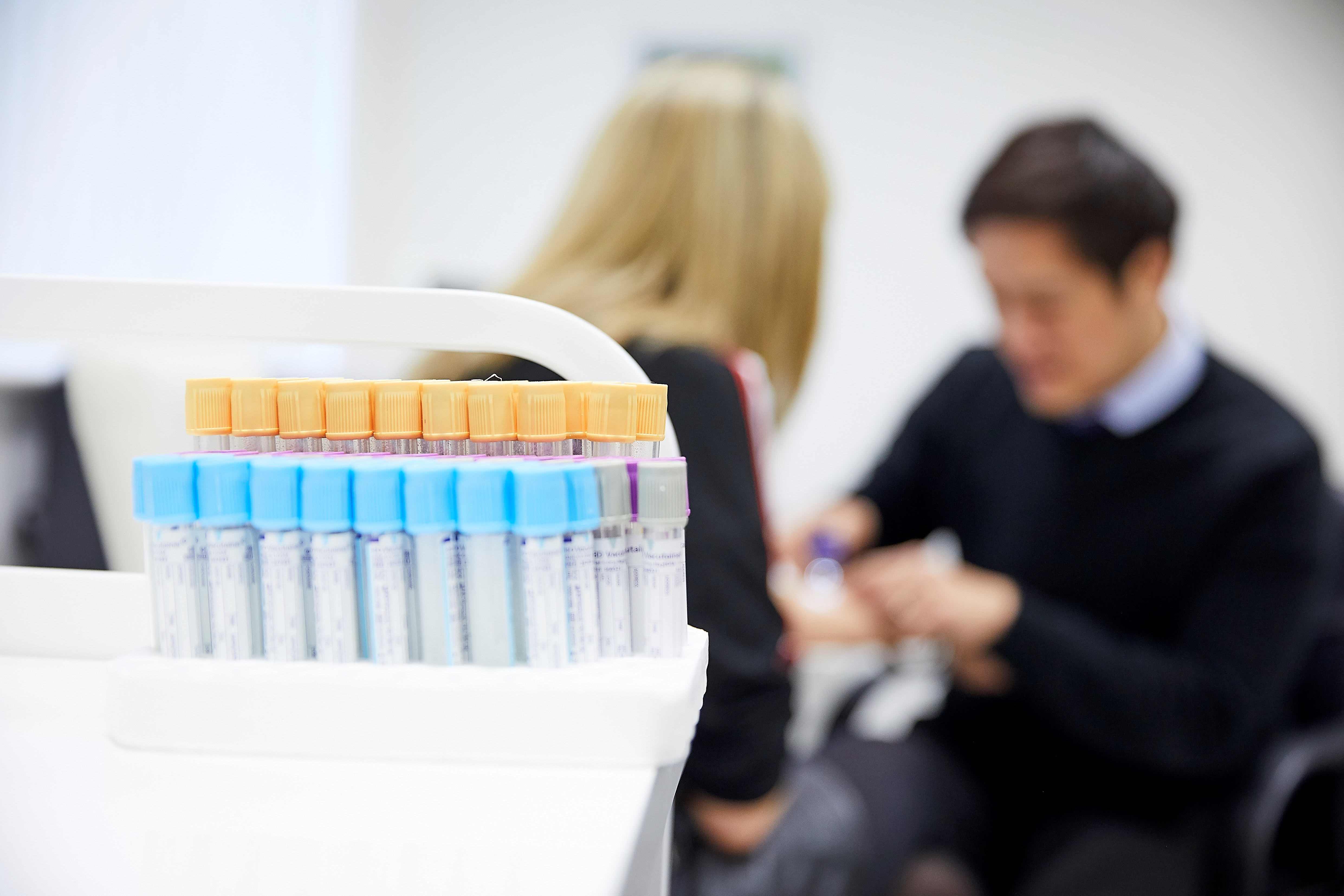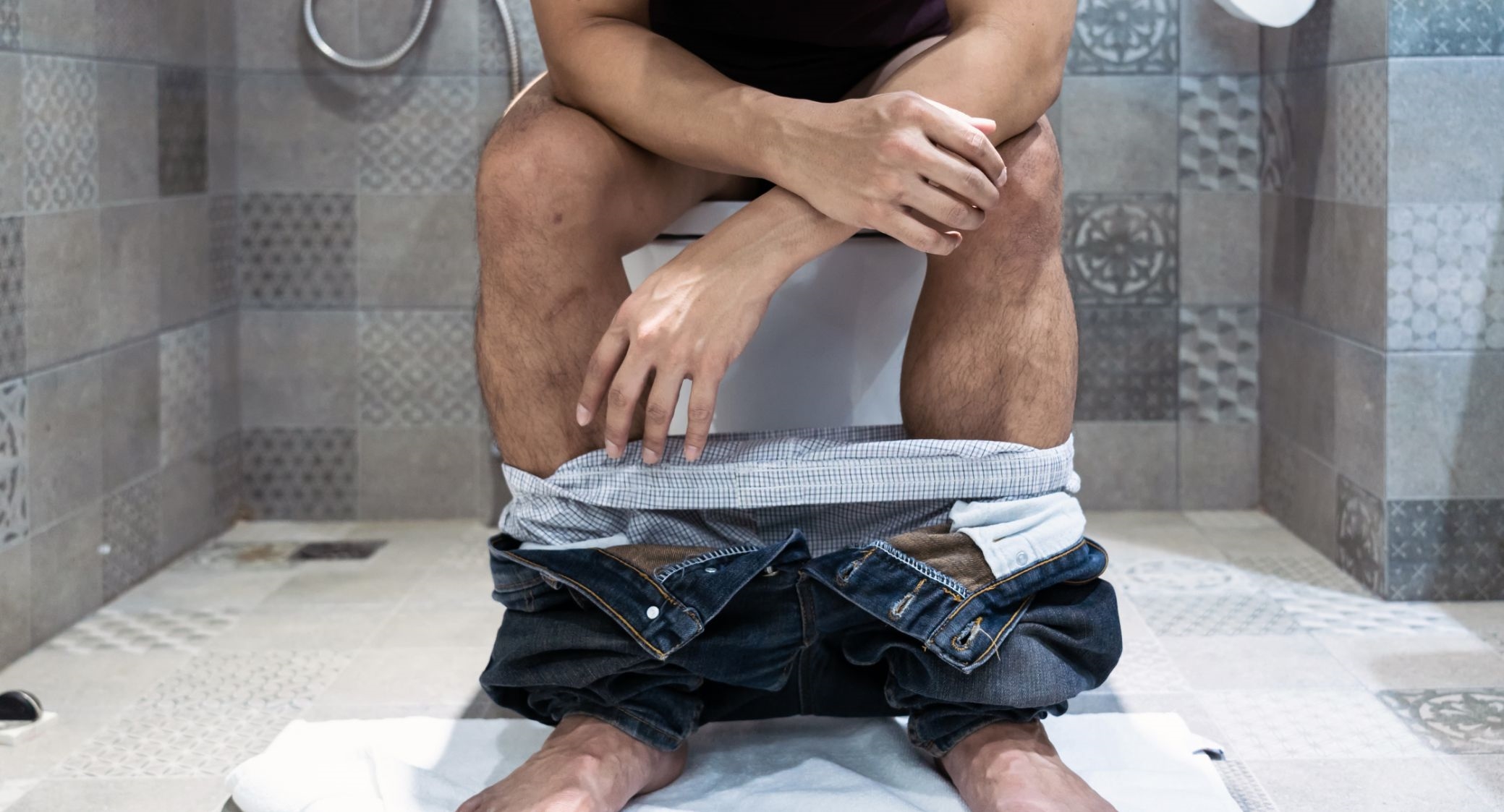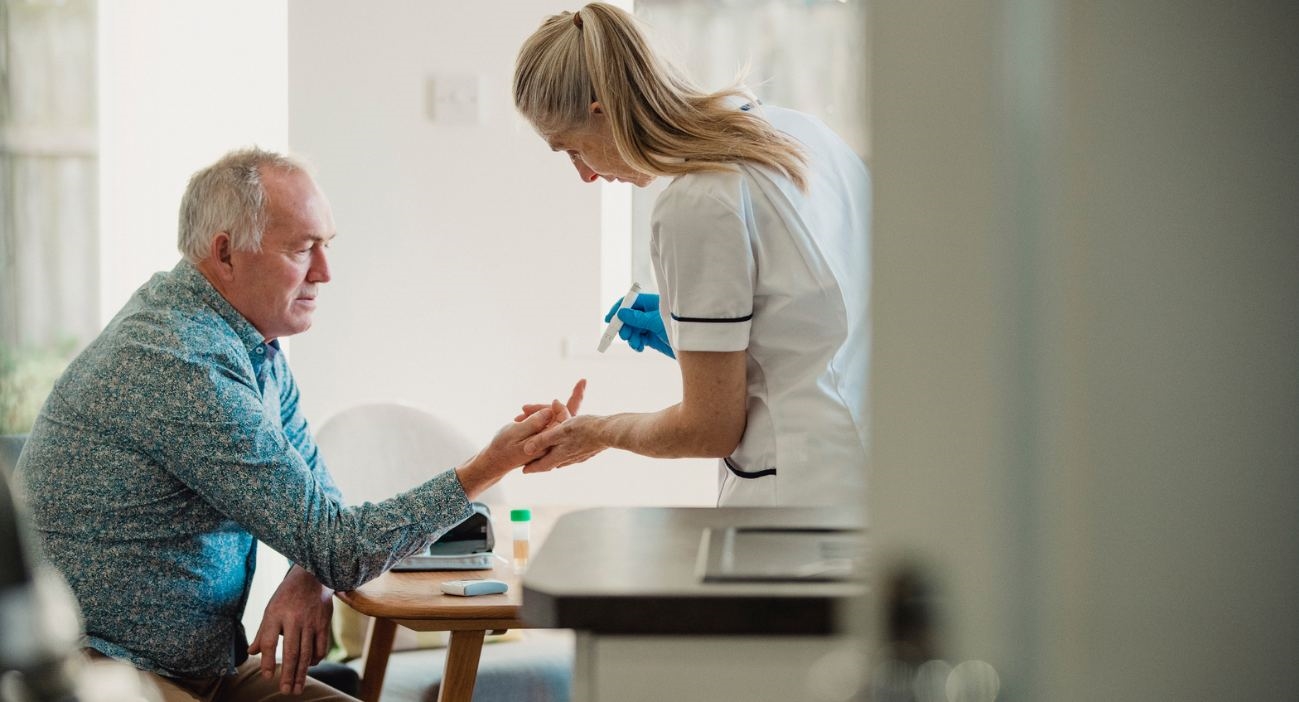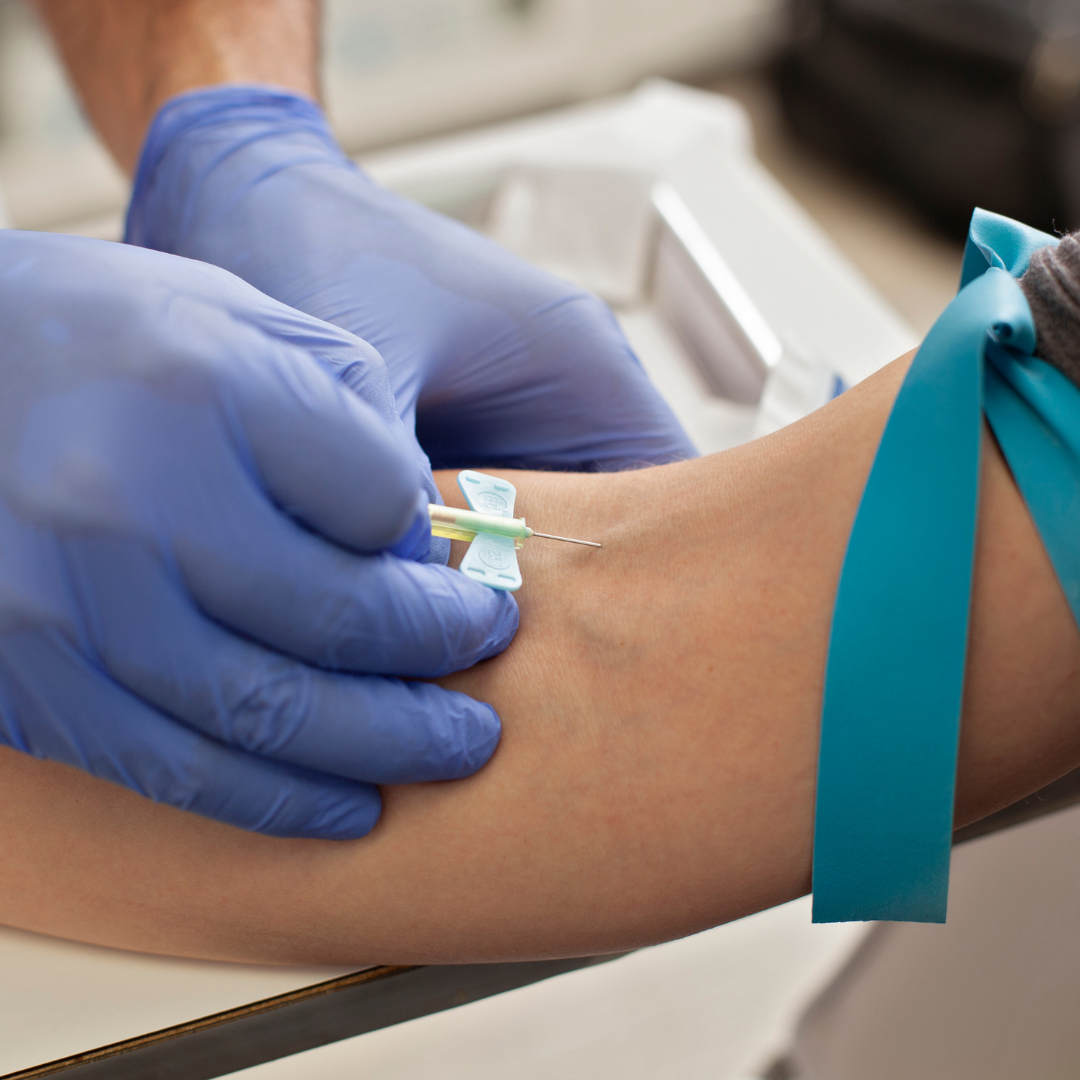An Oral Glucose Tolerance Test (OGTT) is one of the most common glucose tolerance tests and works by confirming whether an individual has difficulty processing sugar, which could indicate diabetes. During the test your blood glucose level will be tested before and after you drink a glucose liquid to measure how quickly your body metabolises the glucose.
On the day of the test, you will be asked not to eat or drink anything after midnight. Once in the clinic, you will have a series of blood and urine tests:
During the test, you will be asked to rest in the waiting room in the periods between samples. Smoking, eating and drinking must be avoided.

